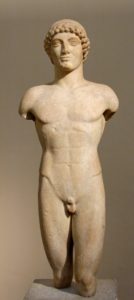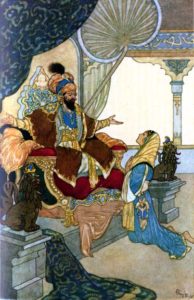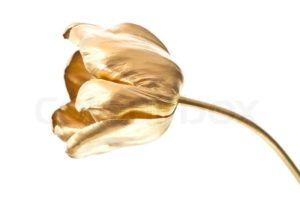Here’s an exclusive look between the covers of The City of Seven Gods.
Allright, it’s not exclusive if you consider that Amazon allows you to ‘look inside’ to view the first few pages. But you won’t get my scene set-up and image fandanglery over at Amazon. Here we go.
I chose a passage from early in the book, but it does need a word or two to orient you. The main character here is Kelemun, a nineteen-year-old priest of Aknon whose vows require that he reserve his body for the veneration of the god, with the insidious exception that young priests are trained to provide “blessings of the flesh” to the wealthiest of pilgrims.
Kelemun is being pursued by Praxtor, the son of Omani (a cherished title for Caliph), and Praxtor had just burst into the temple to try to free Kelemun, which was a sacrilege and a scandal. This passage is a flashback in which Kelemun admits he played a part in that disaster.
~
Praxtor was the most foolish of men. Kelemun should have recognized that the first time they had met. He should have foreseen the danger and steered himself around it. If he had been more careful, the situation would never have come to this.
It had started the past springtide, the month of Aknon’vell, which was the highest holy season for the priesthood. The rains of winter had passed, and it was the time, by Qabbat’s grace, for the earth to be reborn. The coryphei priests, who called the people to prayer, descended to the city to festoon the streets with fronds of the doam. Omani commissioned street fairs, chariot games, and many spectacles of music and dance in the city pavilions.

Ancient Greek kouros sculpture, a prototype for the kouros priest of Temple Aknon
But everyone looked forward the most to the Procession of the Kouri. It was the only time the sacred keepers of Aknon’s house ventured among the people. That year’s procession had engendered a great deal of hysteria since a new high priest, Aknon-Horheb, presided over the festival. He was said to have tall ambitions. The senior priests examined the boys to sort out flaws in posture, composition, and complexion. The sidelines of the parade boulevard would be filled to bursting with people vying to catch a glimpse of the handsome youths and to toss racemes of hyacinth at their feet. Only the most beautiful earned a foremost place in the procession. For Aknon-Horheb, a good showing foretold good profits at the Ward of Prayers.
Kelemun had devoted his body and soul to glorify the god, but he had not been without a warm glow of pride when Aknon-Horheb had announced that he would lead the body of kouri, a delegation of ten score of his peers. He had been named exemplar for the festival and would wear the sacred braided plait, woven to the back of his hair and fanning to his shoulders like a regal bonnet, the embodiment of Aknon, the Prince of Gods.
The day began with bearing blessings to Omani at his audience hall in the palace. Kelemun was to bestow the priesthood’s gifts to the throne. He stepped forward from the delegation of youths and walked to the royal estrade where Omani Neiron, sovereign lord of the city, was bedecked in a blued turban of the finest Qabbati dye. An egg-sized amethyst hung on his forehead, and he sat on his high-backed throne, which was ornamented with flashing orichalcum. His Wazirs, Grandees, and military captains sat behind him like fancy figurines.
Kelemun knelt before the throne and kissed the ground between his hands. He laid a wreath of sapling boughs that held a bounty of navel stones crafted from exquisite gypsum, azurite, and serpentine. Kelemun spoke the cherishing oath. Omani raised his right palm to say the gifts were acceptable to him.

An illustration from The Arabian Nights, a source of inspiration for the royal court of Omani Neiron
That should have been all. Omani Neiron was a good diplomat to every one of his city’s cults, but he was not known to be partial to Aknon, nor the beauty of men. A young man rustled up from the carpeted estrade just as Kelemun stood to return to his place with the kouri.
“Halt there,” the man called.
This brought out a murmur of amusement from Omani’s court. A blush blazed across Kelemun‘s face for being the cause of it, and he prayed it did not show while he stood with his head bowed in submission. He had been taught the dignitary rites and manners and rehearsed them in front of the elder priests. But he was shamefully at a loss over how to handle this interruption of the ceremony. Had he done something improper?
Kelemun’s curiosity betrayed him, and he stole a glance at the young man drawing near. He wore the blued turban of royalty, and his face shone as radiant and arresting as the waxing moon. He had a trim moustache and beard and warm, sparkling, chestnut-colored eyes. A regal balm of magnolia oil surrounded him. Kelemun guessed the man was around the same age as himself, though in his long-sleeved, jeweled coat with a splendid sickle-sword holstered at his waist, he stood a staggering height above a kouros priest. Of course, the man was Praxtor though Kelemun knew very little about Omani’s family at the time.
Kelemun looked upon the man with exceeding wonder. He smiled, and Kelemun found himself responding with a grin. The great hall was silent. Praxtor called over a court attendant who bore an ornate chest fashioned from juniper wood. The chest contained tribute that was to be presented to Aknon-Horheb.
Praxtor bade the man to open the chest. A glittering trove of sapphire, emerald, and ruby doubluns swum in Kelemun’s vision. He glimpsed ornamental gifts as well. Praxtor selected one of them and returned his attention to Kelemun. He held a tulip forged from solid orichalcum. The graceful flowers were cultivated in the Pyrrhean countryside, far north of the River Goran valley, and they were prized the world over for their beauty. The gilded tulip seemed to hover in Kelemun’s sight. Such a beautiful thing could not possibly have been crafted by a mortal hand. It was meant for the gods themselves.
“What is your name?” Praxtor said.
“Kelemun, Your Grace.” By the god’s mercy, he remembered to bow from the waist and remain there.
Praxtor gestured for him to stand erect and show himself. “Kelemun,” Praxtor repeated. Every syllable from his lips fascinated Kelemun. Ensorcelled by their meeting, Kelemun felt as though the many people in the hall had disappeared.
 Praxtor held out the golden tulip. “For you, Kelemun. In tribute to the most handsome man in all of Qabbat’lee.” He turned to the court and raised his voice. “The most handsome man in all of the emperor’s lands.”
Praxtor held out the golden tulip. “For you, Kelemun. In tribute to the most handsome man in all of Qabbat’lee.” He turned to the court and raised his voice. “The most handsome man in all of the emperor’s lands.”
Kelemun reached to take the flower. What else was he to do? In the exchange, he brushed his knuckles against Praxtor’s for an instant. That was bold and scandalous, but Kelemun did not know himself at the time.
Praxtor spoke to him quietly, “I should like to see you again.”
Behind them, Aknon-Horheb cleared his throat and spoke, breaking the enchantment.
“Our Lord is grateful for your generosity.”
With that, Kelemun retreated to the body of kouri. The elder priests ushered the group from the hall.
